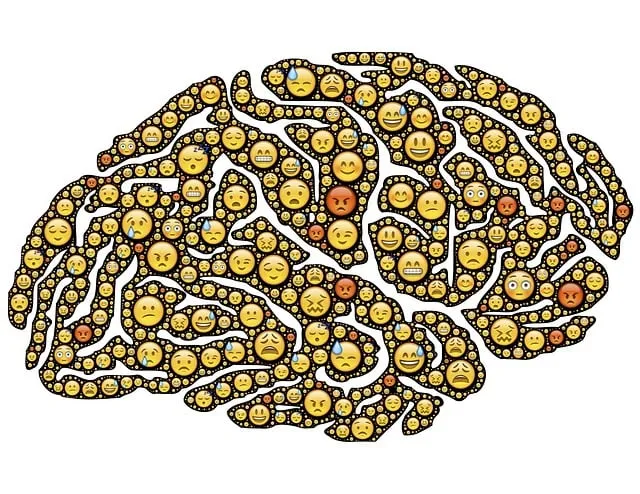Media representation of mental health significantly influences public perception, either reducing stigma or perpetuating harmful stereotypes. In Englewood, where one in five adults suffers from a mental health condition, Kaiser Permanente offers inclusive mental healthcare through community outreach and resilience-building initiatives. However, biased media portrayals hinder access to services and necessitate cultural competency training for professionals. Accurate, empathetic media representations, created with input from mental health experts and individuals with lived experiences, can foster understanding and encourage help-seeking behaviors, as seen with Kaiser Permanente's coverage in Englewood. Community engagement and collaboration are crucial for improving mental illness representation in media, promoting well-being, and challenging stigma.
Mental illness representation in media plays a pivotal role in shaping public perception and understanding. This article explores the profound impact of media on mental health narratives, with a specific focus on Kaiser Permanente’s comprehensive approach to mental health coverage in Englewood. We dissect prevalent portrayal issues, including stereotypes and misconceptions, and propose strategies for more accurate, empathetic, and empowering media depictions. Furthermore, we emphasize the transformative power of community engagement and collaboration as a solution to enhance representation, fostering inclusivity and support.
- Understanding the Impact of Media Representation on Mental Health Perception
- Exploring Kaiser Permanente's Approach to Mental Health Coverage in Englewood
- Identifying Portrayal Issues: Stereotypes and Misconceptions in Popular Media
- Strategies for Accurate and Empathic Media Depictions of Mental Illness
- Community Engagement and Collaboration: A Solution to Enhance Representation
Understanding the Impact of Media Representation on Mental Health Perception

Media representation plays a pivotal role in shaping public perception about mental health, significantly influencing how individuals understand and respond to various conditions. The portrayal of mental illness in movies, television shows, and news media can either perpetuate harmful stereotypes or foster empathy and understanding. When media accurately depicts the experiences of those living with depression, anxiety, or other psychiatric disorders, it can reduce stigma and encourage help-seeking behaviors. This positive impact is crucial, especially considering that one in five adults in the United States suffers from a mental health condition, as reported by Kaiser Permanente.
Englewood, like many communities, relies on media to educate and raise awareness about mental wellness. However, inconsistent or biased representation can lead to misinformed assumptions and hinder access to much-needed mental healthcare services, such as those offered by Englewood’s local healthcare providers. Therefore, addressing these portrayals is essential, especially through initiatives promoting cultural competency training for healthcare professionals. Enhancing the understanding of mental illness in media can contribute to better support systems and improved mental health outcomes on a community level, including those covered under Kaiser Permanente’s comprehensive mental health coverage.
Exploring Kaiser Permanente's Approach to Mental Health Coverage in Englewood

In Englewood, a diverse community facing numerous mental health challenges, Kaiser Permanente has taken a pioneering approach to enhancing mental health coverage. Their strategy involves a multifaceted initiative that includes a robust Community Outreach Program and innovative Empathy Building Strategies tailored to the local context. By actively engaging with the community, Kaiser Permanente aims to break down barriers and stigma associated with seeking mental health support.
The organization’s efforts extend beyond clinical services, focusing on resilience-building activities that empower residents. Through these initiatives, Kaiser Permanente strives to create a more inclusive and supportive environment where individuals can openly discuss their mental health struggles and access the necessary resources without fear of judgment. This community-centric approach not only improves mental well-being but also fosters social cohesion in Englewood.
Identifying Portrayal Issues: Stereotypes and Misconceptions in Popular Media

Media portrayal of mental illness often perpetuates harmful stereotypes and misconceptions, influencing public perception significantly. Popular shows and movies sometimes reduce complex conditions to simplistic, one-dimensional characters or use dramatic effects for shock value, misrepresenting symptoms and recovery journeys. This can lead to stigmatization and hinder understanding among audiences, including those seeking Kaiser Permanente mental health coverage in Englewood. For instance, common stereotypes like portraying individuals with schizophrenia as violent or depicting depression as a mere “case of the blues” are not only inaccurate but also dangerous, fostering an environment where people with genuine mental health struggles may face judgment and discrimination.
Addressing these issues involves advocating for more nuanced and accurate representations in media. Encouraging industry professionals to consult with experts, including those who provide Englewood mental wellness journaling exercise guidance or promote mindfulness meditation practices, can help create authentic stories. By doing so, media can showcase the diverse experiences of individuals with mental illnesses, challenge stereotypes, and foster empathy, ultimately contributing to a more supportive societal environment for those seeking treatment options like those offered by Kaiser Permanente.
Strategies for Accurate and Empathic Media Depictions of Mental Illness

Accurate and empathic media depictions of mental illness are crucial for challenging stereotypes and promoting understanding. Shows and stories that prioritize authenticity over sensationalism can help foster a more compassionate society. This involves consulting with mental health professionals to ensure accurate representation, giving voice to individuals living with these conditions, and showcasing diverse experiences within the spectrum of mental illness. By presenting relatable characters navigating real-world challenges, media can humanize these issues and encourage viewers to seek support or offer kindness to those around them.
Integrating mental health themes into narratives doesn’t just benefit audiences; it also plays a vital role in advocating for better access to care. Organizations like Kaiser Permanente’s mental health coverage in Englewood serves as an example of resources available, highlighting the importance of destigmatization and early intervention. Encouraging self-esteem improvement and promoting mental health education programs design tailored interventions can lead to better outcomes. Additionally, encouraging self-care practices within communities contributes to a collective effort to nurture mental well-being.
Community Engagement and Collaboration: A Solution to Enhance Representation

Community engagement and collaboration are powerful tools to enhance mental illness representation in media. By involving individuals from diverse backgrounds, including those with lived experience of mental health challenges, media creators can ensure more authentic and nuanced portrayals. This approach allows for a deeper understanding of various perspectives, fostering empathy and breaking down stereotypes often perpetuated by mainstream media.
Collaborating with organizations like Kaiser Permanente, which offers comprehensive mental health coverage in Englewood and beyond, can provide valuable insights into the latest research and resources available. Such partnerships can also facilitate the integration of evidence-based practices, such as Mindfulness Meditation and Self-Esteem Improvement techniques, into media narratives, promoting positive mental health messages. Additionally, engaging community leaders and advocates to share their communication strategies can help in creating more impactful content that resonates with audiences while challenging stigma and misinformation.
Mental illness representation in media is a powerful tool that can either perpetuate harmful stereotypes or foster empathy and understanding. By learning from innovative initiatives like Kaiser Permanente’s mental health coverage in Englewood, we can develop strategies to accurately portray mental health struggles. Engaging with communities and collaborating with experts is crucial to enhancing representation, ensuring that media reflects the diverse experiences of those living with mental illness while promoting compassionate, informed public discourse.






